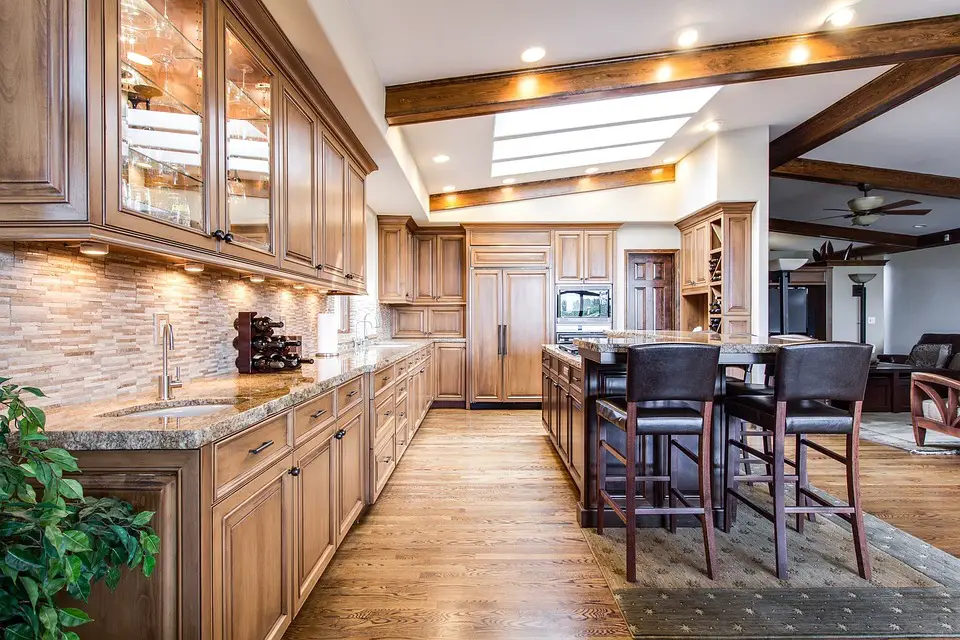Mortgages 101: Choosing the Right Financing Option for Your Home
So, you’ve decided it’s time to trade in your shoebox apartment for a real home. Congratulations, future homeowner! But before you start planning your epic housewarming party (complete with a Pinterest-perfect charcuterie board), let’s talk about the elephant in the room: mortgages. Yes, the word that sends shivers down your spine. But fear not! We’re diving into the nitty-gritty of mortgages, and by the end of this article, you’ll be ready to tackle financing like a pro—without losing your sanity or your wallet.
Why Mortgages Matter: A Brief Overview
Before we jump into the various types of mortgages, let’s get one thing straight: a mortgage is basically a fancy loan you take out to buy a house. Think of it as your new best friend that helps you get your dream home but expects you to pay it back with interest. Spoiler alert: that interest can be a real buzzkill if you don’t choose wisely.
Now, let’s break down the key terms you’ll encounter on this journey:
- Principal: The amount you borrow. This is your mortgage loan—think of it as the price tag on your dream home.
- Interest Rate: The cost of borrowing the money, expressed as a percentage. This is where lenders get their cut, and it can vary widely.
- Term: The length of time you have to pay back the mortgage, typically 15, 20, or 30 years. The longer the term, the lower your monthly payments—but who wants to be in debt for 30 years? Yikes!
Now that we’ve covered the basics, let’s get to the good stuff: choosing the right financing option for your home.
Types of Mortgages: The Good, The Bad, and The Ugly
-
Fixed-Rate Mortgages
This is the classic option. You know what you’re getting into: the interest rate is fixed for the life of the loan. So, if you snag a rate of 3.5% (lucky you!), it won’t change, even if the market goes bananas. This is great for budgeting since your payment remains constant.Pros:
- Predictable monthly payments
- Good for long-term planning
Cons:
- May have higher initial rates compared to adjustable-rate mortgages (ARMs)
When to Choose: If you plan to stay in your home for a while and want stability, this is your go-to.
-
Adjustable-Rate Mortgages (ARMs)
This is the wild child of the mortgage world. ARMs usually start with a lower interest rate that adjusts after a set period (like 5, 7, or 10 years). After the intro period, the rate can fluctuate, which means your monthly payments can go up or down.Pros:
- Lower initial rates
- Potential for lower payments if rates stay down
Cons:
- Payments can increase significantly after the adjustment period
- Harder to budget for
When to Choose: If you’re planning to move in a few years or think interest rates will stay low, this might be a smart play.
-
Government-Backed Loans
If you’re a first-time homebuyer or have less-than-stellar credit, government-backed loans like FHA, VA, and USDA loans can be a lifesaver. These loans come with lower down payment requirements and more lenient credit score criteria.Pros:
- Lower down payment options (as low as 3.5% for FHA)
- Easier qualification
Cons:
- May require mortgage insurance
- Limits on how much you can borrow
When to Choose: If you’re a first-timer or need a little help getting into a home, this is worth exploring.
-
Interest-Only Mortgages
Imagine only paying the interest on your mortgage for a set period (usually 5-10 years). Sounds tempting, right? But here’s the catch: once the interest-only period is over, your payments will spike as you start paying off the principal too.Pros:
- Lower initial payments
- More cash flow for other investments
Cons:
- Risk of payment shock when the principal kicks in
- Potential to owe more than the house is worth if market conditions change
When to Choose: If you’re confident in your income and plan to invest the difference in payments, this could be an option—but tread carefully!
How to Choose the Right Mortgage for You
Now that you’ve got a grasp on mortgage types, it’s time to figure out which one suits your financial situation best. Here are some tactical steps to guide your decision-making:
-
Assess Your Financial Situation
- What’s your credit score? (Aim for 620+ for conventional loans)
- How much can you afford for a down payment? (20% is ideal, but there are options for less)
- What’s your monthly budget? (Don’t forget to factor in taxes, insurance, and maintenance)
-
Consider Your Future Plans
- How long do you plan to stay in the home?
- Are you open to refinancing if rates drop in the future?
-
Get Pre-Approved
Before you start house hunting, get a mortgage pre-approval. This will give you an idea of how much you can borrow and shows sellers you’re serious. Plus, it gives you leverage in negotiations. -
Shop Around
Don’t settle for the first mortgage offer you see. Rates can vary significantly between lenders. Use mortgage comparison tools, or better yet, consult a mortgage broker who can help you navigate the options. - Read the Fine Print
Seriously, don’t skip this. Look for fees, penalties, and terms that could bite you later. You want the mortgage that serves you, not one that turns into a financial ball and chain.
The Bottom Line: Make Your Mortgage Work for You
Choosing the right mortgage is crucial—it’s not just about the house; it’s about your financial future, too. Whether you go for a fixed-rate mortgage, an ARM, or a government-backed loan, make sure it aligns with your lifestyle and financial goals.
And remember, folks: mortgages are just one piece of the wealth-building puzzle. Once you’ve secured that dream home, think about how to leverage it for future investments. Real estate is a powerful tool for building wealth, and your mortgage is just the beginning.
So, go forth and conquer the mortgage market like the savvy hustler you are! And when you’re ready to host that housewarming party, just remember: no one wants to hear about your mortgage woes. They’re there for the charcuterie, not your financial drama. Cheers!






